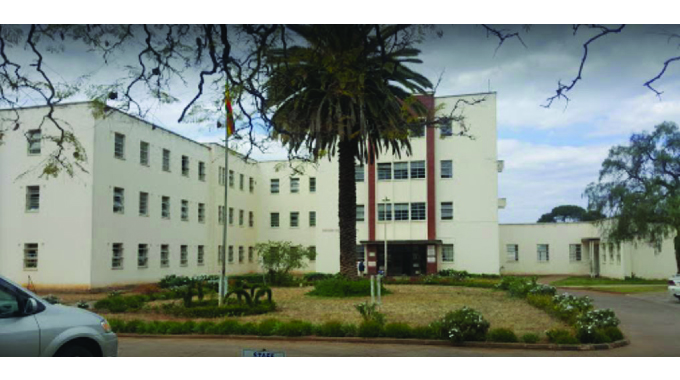Independence ushered in equal access to health care services

Thandeka Moyo-Ndlovu, Senior health Reporter
EVERYONE born after 1980 is often referred to as a “born free” in Zimbabwe as the generation did not endure the dehumanising segregation imposed on blacks during the colonial era.
When gallant sons and daughters of Zimbabwe sacrificed their lives for the country’s independence, their blood ushered in access to equal healthcare services which blacks did not enjoy before 1980.
Prior to independence, Zimbabwe had a fragmented and two-tier medical system that was highly skewed in favour of the urban population in general and the white minority in particular.

While there were approximately 280 doctors to service the country’s 232 422 whites, there were only 850 doctors for the seven million Africans in 1978.
The standards of health services for whites in Rhodesia were comparable to those of the populations of the industrialised West, with crude death rates at 8,2 per 1 000.
In comparison, African infant mortality rates were 122 per 1 000 and reached as high as 300 per 1 000 in remote areas like Binga.
Government-run urban health institutions, those serving the white community like Andrew Fleming (now renamed Parirenyatwa in Harare) were not only better equipped and staffed but they also received a disproportionately large share of the health budget each year.
While health institutions abounded in the urban areas, the colonial government largely neglected the masses in the countryside.
Without the sterling work of church-run hospitals, the countryside would have received little or no medical attention.
Even where Government clinics existed, the long distances the rural people had to walk to reach them, together with the fees charged for treatment which were beyond the reach of many, tended to discourage the rural people from availing themselves to the services provided by such institutions.
Moreover, the emphasis of colonial medicine on curative rather than preventative care meant that the health needs of the African majority were not addressed, since most of the diseases that affected African rural dwellers were mainly communicable diseases, maternity related problems and disease caused by nutritional deficiencies, all of which were preventable.
These statistics from the Ministry of Health and Child Care prove beyond doubt that the sacrifice made by liberation heroes who will be celebrated on Monday also ushered in access to healthcare services for blacks in Zimbabwe.
Before Independence, the United Bulawayo Hospitals (UBH) in Woodlands was initially built for whites while blacks had to get their services from Mpilo Central Hospital located in Mzilikazi.

United Bulawayo Hospitals (UBH)
In an interview Dr Rose Ndlovu, who was a nurse at Mpilo in 1962, said during those days blacks and whites working in the same profession got different salaries.
Dr Ndlovu, who is also the widow of late national hero Dr Sikhanyiso Duke Ndlovu, said only a few nurses were deployed to Mpilo whose services catered for the black majority when compared to UBH.
“I worked at Mpilo in 1962 after I completed my nursing studies which was for blacks, United Bulawayo Hospitals was for whites and Richard Morris was for coloureds.
“There were salaries for whites and salaries for blacks. So even with nurses, there were two grades of salaries.
The white nurses were on a different scale and the black nurses were on a lower scale even though they were all registered nurses,” said Dr Ndlovu.
“I am happy our heroes brought about changes that changed the narrative especially in the health sector. After 1980, more institutions were built for our people in rural areas who mainly relied on mission hospitals.
She said it was only after independence that more blacks could train as nurses and doctors to serve the masses.
“When the black Government took over it was one of the ultimate goals to build more health care centres across the country so that citizens travel at least 20km to the nearest health centre.
Before that, it was worse people would walk for days to reach the nearest facilities while whites had access to quality health care and services at their disposal.”
Dr Ndlovu said there were no laboratories for blacks or specialists then which left the majority with high chances of succumbing to illnesses.
Morbidity (diseases) and mortality (death rates) trends before 1980 show that the population was still affected by the traditional preventable diseases and conditions, that include nutritional deficiencies, communicable diseases, pregnancy and childbirth conditions and the conditions of the newborn.
Renowned gynaecologist Professor Solwayo Ngwenya said segregation in access to healthcare inspired people like him to study medicine and serve the black community which only had a handful of qualified healthcare workers.
“Our fathers were sent to the rural areas where there were no hospitals and they would suffer or even die from minor diseases.
Of note is the fact that even in emergencies, UBH would never attend to any black patient. We all had to crowd at Mpilo then which was short staffed,” he said.
“We are grateful because post-independence our people have a right to be treated wherever they want be in the public or private sector.
Our rural folk also have access as the Government continues to build clinics and hospitals for its people to decongest central hospitals.
We also have many black medical specialists, doctors who have made it and are saving lives daily which is a great achievement as this was only a dream to our forefathers who lived pre-independence.”
To date, Zimbabwe has a minimum of 214 hospitals and 1 634 primary health facilities.
Gogo Mabel Mbambo (78) said even children could not be easily vaccinated against killer diseases before 1980.
“We did not have access to health information like now and I believe that is why some of our children died because there were no vaccines for black and no one bothered to educate new mothers on how to prevent diseases.
We are so grateful to those who fought for the liberation, I can imagine what would have happened if we had no equal access even now as we suffer from many ailments that come with old age.
May the sacrifices made by our heroes help all of us to keep building a better Zimbabwe that will be the pride and joy of everyone,” she said.
– @thamamoe.







Comments